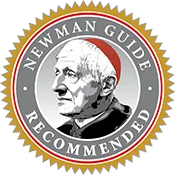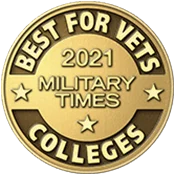The Bachelor of Arts in Liberal Arts allows students to explore integrated disciplines through the Catholic Intellectual Tradition while concentrating or minoring in an area of interest. This curriculum fosters a love for learning and the pursuit of truth, goodness, and beauty, preparing students for graduate programs or careers. Rooted in the Catholic liberal arts tradition, it emphasizes the dignity of the human person as made in God’s image, destined for relationship and freedom. Students gain an integrated vision of reality by studying the true, good, and beautiful through the arts and sciences, grounded in the unity of truth and knowledge. With theology, philosophy, and dialogue between faith and reason, the program inspires wisdom, virtue, and greatness of thought and action through Scripture, Tradition, and Catholic teachings.
Our Accelerated MA Pathway enables motivated students to begin their graduate coursework while completing their undergraduate studies, providing a seamless transition to advanced education while saving time and money.
We are committed to making rigorous Education from the Heart of the Church accessible, equipping students with the knowledge and credentials they need to be well formed leaders.
Course Number | Course Title | Credits |
|---|---|---|
LIBERAL ARTS (3 credits) | ||
LIB 200 | Principles of Liberal Learning | 3 credit hours |
MATHEMATICS (3 credits) | ||
MATH 105 | General Mathematics for Liberal Arts | 3 credit hours |
NATURAL SCIENCES (3 credits) | ||
BIO 101 | General Biology | 3 credit hours |
SOCIAL SCIENCES (3 credits) | Choose One | ||
ANTH 101 | Introduction to Anthropology | 3 credit hours |
ECN 101 | Macroeconomics | 3 credit hours |
SOC 101
| Introduction to Sociology | 3 credit hours |
GEO 101 | Introduction to Geography | 3 credit hours |
ENGLISH LANGUAGE ARTS (3 credits) | ||
ENG 105 | Introduction to Composition | 3 credit hours |
HISTORY (3 credits) | ||
HIST 211 | Christian Civilization | 3 credit hours |
PHILOSOPHY (12 credits) | ||
PHIL 205 | Introduction to Philosophy with Plato and Aristotle | 3 credit hours |
PHIL 235 | Elements of the Philosophy of the Human Person | 3 credit hours |
PHIL 311 | Ethics | 3 credit hours |
PHIL 315 | Metaphysics | 3 credit hours |
THEOLOGY (12 credits) | ||
SCRPT 103 | Survey of the Old Testament | 3 credit hours |
SCRPT 106 | Survey of the New Testament | 3 credit hours |
THEO 204 | Foundations of Catholicism | 3 credit hours |
THEO 213 | God, Man and the Universe | 3 credit hours |
Course Number | Course Title | Credits |
|---|---|---|
LIBERAL ARTS (3 credits) | ||
LIB 400 | Liberal Arts and Seeing the Whole | 3 credit hours |
FOREIGN LANGUAGE (9 credits) | Choose Three | Must be the same language (with 3 Intermediate Credits) | ||
LAT 101 & 102 | Latin I & II | 6 credit hours |
LAT 201 & 202 | Intermediate Latin I & II | 6 credit hours |
GRK 101 & 102 | Greek I & II | 6 credit hours |
GRK 201 & 202 | Intermediate Greek I & II | 6 credit hours |
SPAN 101 & 102 | Spanish I & II | 6 credit hours |
SPAN 201 & 202 | Intermediate Spanish I & II | 6 credit hours |
MATHEMATICS (6 credits) | ||
MAT 115 | Probability and Statistics | 3 credit hours |
MAT 120 | Analytical Geometry and Calculus I | 3 credit hours |
NATURAL SCIENCES (6 credits) | ||
BIO 150 | Nutrition | 3 credit hours |
BIO 201 | Human Biology | 3 credit hours |
PHYS 101 | Introduction to Physics | 3 credit hours |
SOCIAL SCIENCES (6 credits) | Choose Two | ||
ANTH 101 | Introduction to Anthropology | 3 credit hours |
ECN 101 | Introduction to Macroeconomics | 3 credit hours |
ECN 201 | Introduction to Microeconomics | 3 credit hours |
SOC 101
| Introduction to Sociology | 3 credit hours |
GEO 101 | Introduction to Geography | 3 credit hours |
COMPUTER SCIENCES (6 credits) | ||
COSCI 101 | Computer Essentials | 3 credit hours |
COSCI 201 | Programming Languages | 3 credit hours |
HISTORY (6 credits) | ||
HIS 201 | Ancient Civilization | 3 credit hours |
HIS 221 | World Civilization | 3 credit hours |
FINE ARTS (6 credits) | ||
MUS 150 | Sacred and Secular Music | 3 credit hours |
ART 101 | Sacred and Secular Art Appreciation | 3 credit hours |
COMPOSITION & LITERATURE (6 credits) | ||
ENG 111 | Introduction to Literature | 3 credit hours |
ENG 310 | Literature and the Sacramental Imagination | 3 credit hours |
PHILOSOPHY (3 credits) | ||
PHIL 240 | Logic | 3 credit hours |
THEOLOGY (3 credits) | ||
Choose One | Any theology course 300-level or higher | 3 credit hours |
Open Electives (21 credits) | ||
Electives can be applied toward earning the following minors: | Philosophy, Business, Education, History or Sacred Scripture | 21 credit hours |
*Students who have already studied Catechism I and II at the AA Level are exempt from taking THEO 204. These students are required to take three additional elective credits. Theology Electives – 15 credits
To earn the Minor in Philosophy students must complete the five following undergraduate courses (15 credits) at Catholic International.
Course Number | Course Title | Credits |
|---|---|---|
PHIL 205 | Introduction to Philosophy with Plato and Aristotle | 3 credit hours |
PHIL 235 | Philosophy of the Human Person | 3 credit hours |
PHIL 311 | Ethics | 3 credit hours |
PHIL 315 | Metaphysics | 3 credit hours |
PHIL 240 | Logic | 3 credit hours |
Students also must complete two of the following undergraduate courses (6 credits) at Catholic International.
Course Number | Course Title | Credits |
|---|---|---|
PHIL 421 | The Thought of Thomas Aquinas | 3 credit hours |
PHIL 330 | Contemporary Philosophy | 3 credit hours |
PHIL 320 | Modern Philosophy | 3 credit hours |
A maximum of 3 transfer credits may be applied toward the minor, upon review and approval by Academic Leadership.
To earn the Minor in Business, students must complete six of the following undergraduate courses (18 credits) at Catholic International.
Course Number | Course Title | Credits |
|---|---|---|
MGMT 101 | Principles of Management | 3 credit hours |
MGMT 102 | Principles of Marketing | 3 credit hours |
ACCT 103 | Accounting I | 3 credit hours |
FINA 104 | Introduction to Finance | 3 credit hours |
ECON 101 | Intro to Macroeconomics | 3 credit hours |
BUSL 105 | Business Law | 3 credit hours |
A maximum of 3 transfer credits may be applied toward the minor, upon review and approval by Academic Leadership.
To earn the Minor in Education, students must complete six of the following undergraduate courses (18 credits) at Catholic International. Students wishing to add a minor in Education must have a 3.0 GPA in order to register for the following courses in their junior and senior years.
Course Number | Course Title | Credits |
|---|---|---|
LIB 200 | Principles of Liberal Learning | 3 credit hours |
LIB 400 | Liberal Arts and Seeing the Whole | 3 credit hours |
LIB 401 | Christian Anthropology | 3 credit hours |
EDU 410 | Foundations of Western Education | 3 credit hours |
EDU 420 | Newman and the Liberal Arts Tradition | 3 credit hours |
RELED 460 | Principles of Catholic Education | 3 credit hours |
One Education Elective | 3 credit hours | |
A maximum of 3 transfer credits may be applied toward the minor, upon review and approval by Academic Leadership.
To earn the Minor in History, students must complete all six undergraduate courses (18 credits) in History and Church History at Catholic International.
Course Number | Course Title | Credits |
|---|---|---|
CHIST 214 | Church History I: Early Christians to Middle Ages | 3 credit hours |
CHIST 224 | Church History II: Renaissance to Modern Church | 3 credit hours |
CHIST 244 | History of the Catholic Church in America | 3 credit hours |
HIST 201 | Ancient Civilization | 3 credit hours |
HIST 211 | Christian Civilization | 3 credit hours |
HIST 221 | A Global Civilization | 3 credit hours |
A maximum of 3 transfer credits may be applied toward the minor, upon review and approval by Academic Leadership.
To earn the Minor in Theology, students must complete seven of the following undergraduate courses (21 credits) at Catholic International.
Course Number | Course Title | Credits |
|---|---|---|
SCRPT 103 | Survey of the Old Testament | 3 credit hours |
SCRPT 106 | Survey of the New Testament | 3 credit hours |
THEO 204 | Foundations of Catholicism | 3 credit hours |
THEO 213 | God, Man, and the Universe | 3 credit hours |
THEO 410 | Christology | 3 credit hours |
THEO | Plus any 2 Theology courses at 300- or 400-level | 6 credit hours |
A maximum of 3 transfer credits may be applied toward the minor, upon review and approval by Academic Leadership.
The Bachelor of Arts in Liberal Arts is a fully-online undergraduate degree that provides a broad and integrated education grounded in the Catholic intellectual tradition. With a classical foundation, the program emphasizes critical thinking, moral reasoning, and interdisciplinary study across subjects like philosophy, theology, literature, history, and the sciences.
Yes. As an online-only Catholic university, Catholic International University offers this degree program entirely online, allowing students to study from anywhere while maintaining flexibility around their personal and professional commitments.
The program typically takes four years for full-time students to complete. However, part-time and accelerated enrollment is available, giving students the flexibility to progress at a pace that works for their schedule.
This program is deeply rooted in the Catholic intellectual and spiritual tradition. Students not only explore the great works of Western civilization but also engage with theological and philosophical perspectives that reflect a faith-centered worldview. The program nurtures both intellectual development and moral formation.
Students take a diverse range of courses, including:
Yes, Catholic International is recognized as an accredited institution of higher learning in all 50 states and the District of Columbia. As a member of the State Authorization Reciprocity Agreement (SARA) in West Virginia, Catholic International is in compliance with regulations to offer programs to residents of all states except California. For more information about SARA, please visit https://www.nc-sara.org/.
Yes. Catholic International accepts transfer credits from other accredited institutions, subject to review. A maximum number of credits that may be transferred will be determined based on academic policy.
This program is ideal for students who:
No. The BA in Liberal Arts is delivered 100% online. There are no required campus visits, allowing students from around the world to participate.
A liberal arts degree prepares students for a wide range of careers. Graduates often pursue roles in:
Students can apply directly through the Catholic International University admissions page. The application process typically includes submitting transcripts, a personal statement, and a short essay on your interest in Catholic liberal arts education.
Catholic International University Provides:




